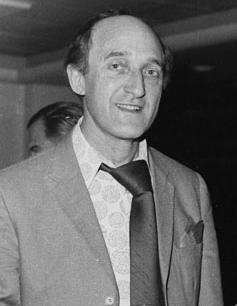
Ron Moody was an English actor, composer, singer and writer. He was best known for his portrayal of Fagin in Oliver! (1968) and its 1983 Broadway revival. Moody earned a Golden Globe Award and an Academy Award nomination for the film, as well as a Tony Award nomination for the stage production. Other notable projects include The Mouse on the Moon (1963), Mel Brooks' The Twelve Chairs (1970) and Flight of the Doves (1971), in which Moody shared the screen with Oliver! co-star Jack Wild.

Capucine was a French fashion model and actress known for her comedic roles in The Pink Panther (1963) and What's New Pussycat? (1965). She appeared in 36 films and 17 television productions between 1948 and 1990.

Patricia Neal was an American actress of stage and screen. She is well known for, among other roles, playing World War II widow Helen Benson in The Day the Earth Stood Still (1951), radio journalist Marcia Jeffries in A Face in the Crowd (1957), wealthy matron Emily Eustace Failenson in Breakfast at Tiffany's (1961), and the worn-out housekeeper Alma Brown in Hud (1963). She also featured as the matriarch in the television film The Homecoming: A Christmas Story (1971); her role as Olivia Walton was re-cast for the series it inspired, The Waltons. A major star of the 1950s and 1960s, she was the recipient of an Academy Award, a Golden Globe Award, a Tony Award, and two British Academy Film Awards, and was nominated for three Primetime Emmy Awards.
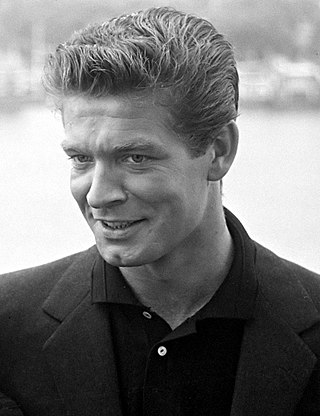
Stephen Boyd was a Northern Irish actor. He appeared in some 60 films, most notably as the villainous Messala in Ben-Hur (1959), a role that earned him the Golden Globe Award for Best Supporting Actor – Motion Picture. He received his second Golden Globe Award nomination for Billy Rose's Jumbo (1962). He also appeared, sometimes as a hero and sometimes as a malefactor, in the major big-screen productions The Night Heaven Fell (1958), The Bravados (1958), The Best of Everything (1959), Imperial Venus (1962), The Fall of the Roman Empire (1964), Genghis Khan (1965), Fantastic Voyage (1966) and Shalako (1968).
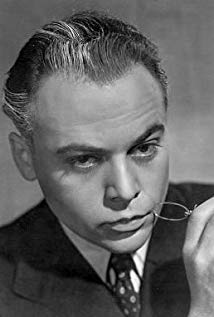
Herbert Charles Angelo Kuchačevič ze Schluderpacheru, known professionally as Herbert Lom, was a Czech-British actor with a career spanning over 60 years. His cool demeanour and precise, elegant elocution saw him cast as criminals or suave villains in his younger years, and professional men and nobles as he aged. Highly versatile, he also proved a skilled comic actor in The Pink Panther franchise, playing the beleaguered Chief Inspector Charles Dreyfus in seven films.

Elke Sommer is a German actress. She appeared in numerous films in her heyday throughout the 1960s and 1970s, including roles in The Pink Panther sequel A Shot in the Dark (1964), the Bob Hope comedy Boy, Did I Get a Wrong Number! (1966), Agatha Christie's And Then There Were None (1974), and the British Carry On series in Carry On Behind (1975).

Jerome Irving Wald was an American screenwriter and a producer of films and radio programs.
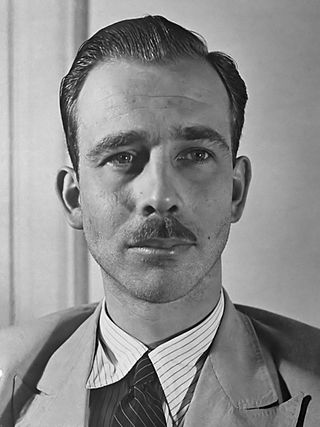
Jan de Hartog was a Dutch playwright, novelist and occasional social critic who moved to the United States in the early 1960s and became a Quaker.

Dolores Hart, O.S.B. is an American Roman Catholic Benedictine nun and former actress. Following her movie debut with Elvis Presley in Loving You (1957), she made 10 films in five years, including Wild Is the Wind (1957), King Creole (1958), and Where the Boys Are (1960).

Philip Ives Dunne was an American screenwriter, film director and producer, who worked prolifically from 1932 until 1965. He spent the majority of his career at 20th Century Fox. He crafted well regarded romantic and historical dramas, usually adapted from another medium. Dunne was a leading Screen Writers Guild organizer and was politically active during the "Hollywood Blacklist" episode of the 1940s–1950s. He is best known for the films How Green Was My Valley (1941), The Ghost and Mrs. Muir (1947), The Robe (1953) and The Agony and the Ecstasy (1965).
The Mirisch Company was an American film production company owned by Walter Mirisch and his brothers, Marvin and Harold Mirisch. The company also had sister firms known at various times as Mirisch Production Company, Mirisch Pictures Inc., Mirisch Films, and The Mirisch Corporation.

Vito Giusto Scozzari, also known as Vito Scotti, was an American character actor who played both dramatic and comedy roles on Broadway, in films, and later on television, primarily from the late 1930s to the mid-1990s. He was known as a man of a thousand faces for his ability to assume so many divergent roles in more than 200 screen appearances in a career spanning 50 years and for his resourceful portrayals of various ethnic types. Of Italian heritage, he played everything from a Mexican bandit, to a Russian doctor, to a Japanese sailor, to an Indian travel agent.

Ferdy Mayne or Ferdie Mayne was a German-British stage and screen actor. Born in Mainz, he emigrated to the United Kingdom in the early 1930s to escape the Nazi regime. He resided in the UK for the majority of his professional career. Working almost continuously throughout a 60-year-long career, Mayne was known as a versatile character actor, often playing suave villains and aristocratic eccentrics in films like The Fearless Vampire Killers, Where Eagles Dare, Barry Lyndon, and Benefit of the Doubt.

Douglas Wilmer was an English actor, best known for playing Sherlock Holmes in the 1965 TV series Sherlock Holmes.
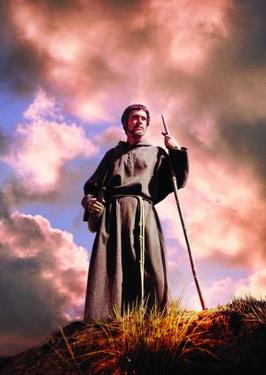
Francis of Assisi is a 1961 DeLuxe CinemaScope epic film directed by Michael Curtiz, based on the 1958 novel The Joyful Beggar by Louis de Wohl. The film starred Bradford Dillman, in one of his few sympathetic leading film roles, Dolores Hart and Stuart Whitman. Shot entirely in Italy, it was a box office bomb.

Roelof Paul Citroen was a German-born Dutch artist, art educator and co-founder of the New Art Academy in Amsterdam. Among his best-known works are the photo-montage Metropolis and the 1949 Dutch postage stamps.
Hans Günther Adler was a Czech-English German-language poet and novelist, scholar, and Holocaust survivor.
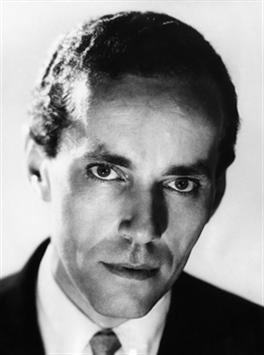
Curt Lowens was a German actor of the stage and in feature films and television, as well as a Holocaust survivor and a rescuer who saved about 150 Jewish children during the Holocaust.
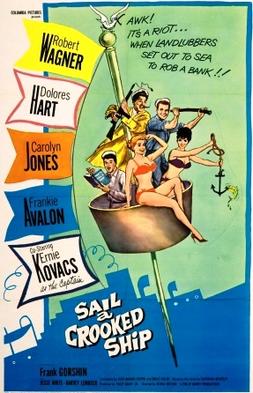
Sail a Crooked Ship is a 1961 American black-and-white comedy heist film starring Robert Wagner, Dolores Hart, Carolyn Jones, Frankie Avalon, Ernie Kovacs and Frank Gorshin. It was directed by Irving Brecher and was based on the 1960 novel of the same name by Nathaniel Benchley.

Melanie von Nagel, known as Muska Nagel and in religion Mother Jerome von Nagel Mussayassul O.S.B., was a German-born baroness, literary translator, poet, and Roman Catholic nun at the Benedictine Abbey of Regina Laudis in Bethlehem, Connecticut.


















